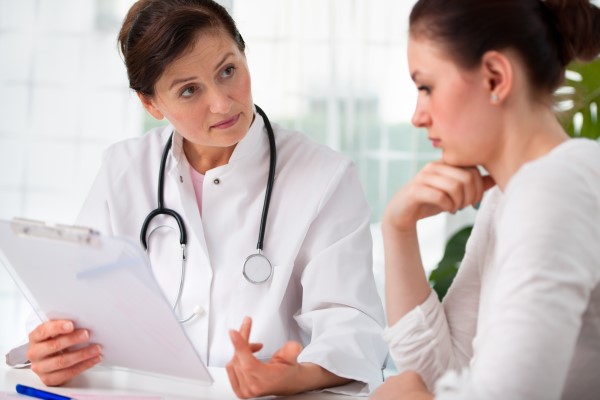What To Know About Menopause

Looking for information on menopause? Read on to learn more about this condition. Most women go through menopause at some point in their life. However, for many women, the shift may be difficult. Menopause starts when their menstrual cycle stops completely and pregnancy is no longer possible. However, women experience menopausal symptoms differently. Most women suffer some form of symptom due to hormonal shifts, although the kind and intensity vary.
According to the U.S. Office of Women's Health, the average age of menopause onset in the United States is 52. There is a chance that it may start earlier or later, depending on the woman's overall health and family history. Having a better understanding of menopause might help ease the symptoms and transition. Continue reading for answers to some of the most commonly asked questions regarding menopause.
An overview of menopause
The stoppage of estrogen production (a hormone that regulates the menstrual cycle) by the ovaries initiates menopause. When a woman has gone 12 months consecutively without ovulating, she has officially entered menopause.
Several women begin to experience the first signs and symptoms of menopause many years before their last menstrual cycle. It is known as perimenopause, or the protracted transition to menopause, when estrogen levels fluctuate and symptoms may occur.
Hot flashes and irregular menstrual cycles are common signs. Night sweats, sleep issues, mood swings, joint pains, palpitations, weight gain, and vaginal dryness are some of the other symptoms. Premenopause lasts for an average of four years before menopause sets in.
How can I get relief from hot flashes without using medication?
Dressing in layers, holding a handy fan, and drinking enough water might help alleviate hot flashes for certain women. Reducing alcohol and caffeine can also help. Some anti-hypertensive and anti-depressant medications may help reduce hot flashes and excessive perspiration.
Some over-the-counter supplements are touted as relief for hot flashes. It is vital to consult a doctor first since these supplements may interact with other medications or medical conditions. The doctor can recommend effective solutions based on the patient's symptoms and medical history.
Who is a candidate for hormone therapy?
Women in their 50s and younger who are experiencing symptoms like hot flashes and night sweats might benefit from hormone treatment. Estrogen is typically given to women who have had a hysterectomy, a surgery to remove the uterus. Women with their uterus intact are given estrogen as well as progesterone, which can lower the risks of uterine cancer.
These meds are often available in pills, patches, creams, or gels. Hormone treatment has both advantages and disadvantages that patients can discuss with their doctor.
Are moodiness and depression a side effect of menopause?
Mood changes are common throughout the menopausal period. Patients must come to terms with the changes happening in the body. Simple dietary and exercise regimens may help alleviate some symptoms. Short-term use of medications or visiting a counselor may help some women stabilize their moods. Alternative medicine options might also help.
Does menopause affect sex drive?
Several factors can contribute to reduced libido. Lower hormone levels, vaginal dryness (which may cause discomfort), and changes in the woman's body all have an impact.
Resolving this issue requires open dialogue and the development of trusting relationships. Vaginal moisturizers and lubricants might be effective after other health issues have been ruled out.
Does every woman experience menopause symptoms?
There may be no symptoms at all for some women. Menopause is a natural part of aging, so even if a woman feels fortunate, she should still make an annual doctor's appointment and keep an eye on her health.
The menopausal transition might be made easier for women who maintain a healthy lifestyle. Consuming nutritious foods is advisable. To keep the bones strong, eat a diet high in calcium and vitamin D. Regular exercise lowers the rate of bone loss and improves general wellbeing. Adults are advised to participate in aerobic exercises and muscle-strengthening activities regularly.
What is the connection between menopause and osteoporosis?
After 35, both men and women begin to lose some bone mass. Menopause, on the other hand, is associated with a faster rate of bone loss in women since estrogen levels are lower. Osteoporosis may occur if too much bone is lost, leading to bone fractures.
The bottom line
Menopause issues and concerns should be directed to your doctor. Your doctor can help you make this transition seamlessly. Contact our wellness center today to book an appointment.
Get more information here: https://omgwellnessmd.com or call Optimal Medical Group at (559) 425-1118
Check out what others are saying about our services on Yelp: Read our Yelp reviews.
Related Posts
Prescription Weight Loss Payment Plans let patients spread the high cost of GLP‑1 weight loss medications and clinic care into predictable monthly payments instead of paying everything upfront. For many adults trying to lose weight with weight loss drugs like Wegovy, Ozempic, or Zepbound, these plans are the difference between starting treatment and giving up.…
Prescription weight loss telehealth options allow adults with obesity and weight related medical problems to meet virtually with a healthcare provider, be medically evaluated, and receive appropriate weight loss medication prescriptions without visiting the office every time. In most cases, patients complete a structured online visit, review their health history and body mass index (BMI),…
Prescription Weight Loss Cost in Fresno, CA typically ranges from about $100–$500 per month for basic programs to around $3,000 for a 12‑week complete plan in a medical office. Most Fresno patients are paying for supervision, prescription medications, labs, and coaching, not just a single shot or pill. In practical terms, that means budgeting for…
Prescription Weight Loss vs Weight Watchers comes down to one core decision: medical, medication-based treatment versus a structured lifestyle and behavioral program. Both can support weight loss, but they work in very different ways and suit different people. Prescription weight loss medications change biology that drives hunger and cravings, while Weight Watchers focuses on diet,…

















